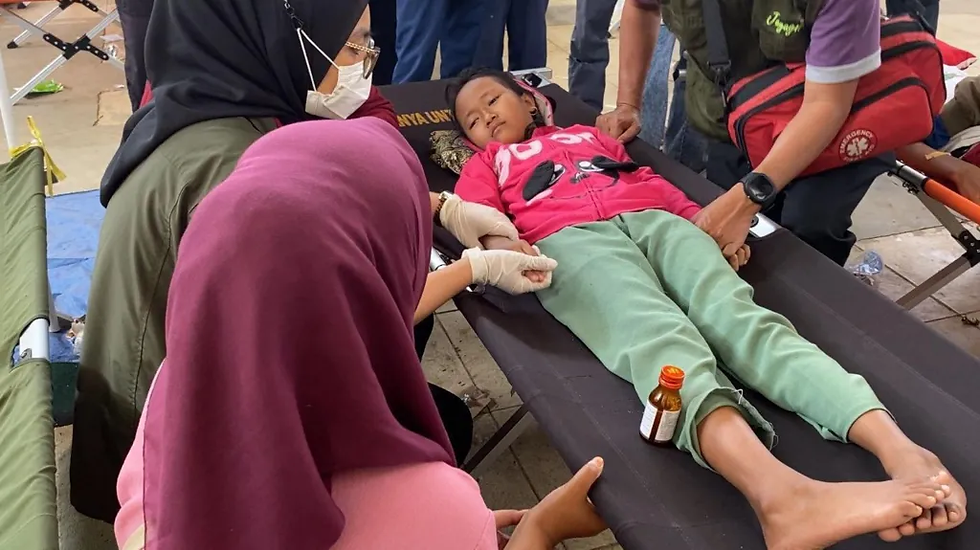Mass Food Poisoning Hits Indonesia’s Free School Lunch Programme, Over 1,200 Children Affected
- Rahaman Hadisur

- Oct 1, 2025
- 2 min read
Hadisur Rahman, JadeTimes Staff
H. Rahman is a Jadetimes news reporter covering the Asia

More than 1,200 children in Indonesia have fallen ill this week after eating free school lunches provided under President Prabowo Subianto’s multi-billion-dollar nutritious meals programme, authorities confirmed.
Between Monday and Wednesday, at least 1,258 poisoning cases were recorded in West Java’s Cipongkor, according to local health officials. The outbreak follows similar incidents last week, when more than 800 students in West Java and Central Sulawesi were affected.
The free meals initiative, one of President Prabowo’s flagship policies, aims to provide lunches to 80 million school children nationwide. However, a series of mass food poisoning incidents has raised alarm among NGOs and education groups, who are urging the government to suspend the programme for review.
Victims of the latest outbreaks reported stomach pain, dizziness, nausea, and even shortness of breath an unusual symptom in food poisoning cases. Meals served this week included soy sauce chicken, fried tofu, vegetables, and fruit. Previous incidents have been linked to expired sauces and improper food preparation, including a case involving fried shark.
Indonesia’s National Nutrition Agency (BGN) said technical errors by the Nutrition Fulfillment Service Unit (SPPG) were to blame for last week’s cases in Cipongkor. The unit’s operations there have since been suspended. West Bandung regent Jeje Ritchie Ismail has declared the outbreak an “extraordinary event” to speed up handling.
From January to 22 September, authorities recorded 4,711 cases of food poisoning linked to the programme, with most occurring in Java. An NGO, the Indonesian Education Monitoring Network (JPPI), places the figure even higher, at 6,452 cases.
Despite mounting pressure, officials say there are no plans to halt the initiative. The government has already allocated more than $10 billion this year for the programme, which some experts warn could become vulnerable to corruption given its vast scale.
President Prabowo has defended the initiative as a crucial step in combating child stunting, though critics argue its high cost and repeated safety lapses demand urgent scrutiny.motive and ensure the safety of the area.











































Comments